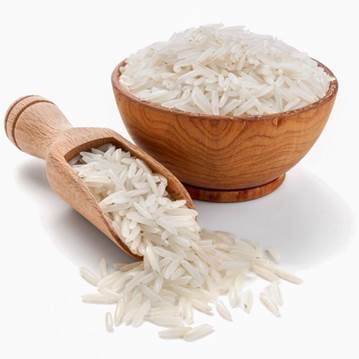Description

Disclaimer: Copyright infringement not intended.
Context
- Indian Agriculture Research Institute (IARI) developed five varieties of Basmati Rice seeds in 2020 and 2021. These are now ready to be used in fields after all trials. These paddy seeds can resist diseases and herbicides.
Background
- Over a period of time, as the area of cultivation increased, traditional varieties of Basmati have become susceptible to two major diseases — bacterial leaf blight (BLB) and blast (leaf and collar) diseases caused by the fungus Magnaporthe oryzae.
- Pesticides and fungicides used against these diseases increased the residue levels permitted in developed countries.
- Recently, the export to EU countries faced certain hurdles due to the increase in the pesticide residue levels in the rice from India.
- Achieving the permitted levels is very difficult if pesticides are used for controlling pests. The only way is to bring in genetic resistance.
The new varieties
- Researchers developed genetically resistant varieties- Pusa Basmati 1885; Pusa Basmati 1847; Pusa Basmati 1886. All these varieties have two genes to resist BLB and two genes to resist blast disease.
- Also, the IARI developed Pusa Basmati 1979 and Pusa Basmati 1985 as herbicide tolerant rice. These two varieties can save 35% of water as the method of Direct Sowing of Rice (DSR) can be used to raise them.
|
Note
The traditional way of paddy cultivation relied on transplanting the plants into a water-filled field midway through the cycle. Around 3,000 litres of water is required for one kilogram of Basmati rice. This has impacted the groundwater table of States like Punjab and Haryana.
Water saving is 35% in DSR and the requirement will be 2,000 litres of water for a kilogram of rice. The second advantage is that the greenhouse gas emission is reduced by 35% as water is not stagnating in this process. Labour cost of transplantation, which is about ₹3,000, is also saved.
However, one of the major problem in the DSR is weeds. Without the water acting as a herbicide, the DSR method allows for lot of weeds to crop up in the field. Hence, scientists transferred a gene that is resistant to a herbicide. So, when farmers spray herbicide, weeds will be killed, not paddy.
|
Significance of this research
- In the next three years, all of the five seeds will have the combined qualities of disease and herbicide resistance.
- This will help in increasing farmers’ income by reducing the cost of cultivation, by improving production and by realising price of their labour and input cost. It will reduce the use of pesticides and water. If the production is free from residue, it will get better prices.
- This is set to bring revolutionary changes in the way Basmati rice is cultivated in the country.
Basmati Rice
- Basmati, is a variety of long, slender-grained aromatic rice which is traditionally grown in India, Pakistan, and Nepal.
- India is known for its Basmati rice, with seven States — Jammu and Kashmir, Himachal Pradesh, Punjab, Haryana, Delhi, Uttar Pradesh and Uttarakhand — earmarked for geographical indication.
- The largest area under Basmati rice is in the state of Haryana (60%) followed by Uttar Pradesh (17.1%) and Punjab (16.1%).
- According to the Indian Government agency Agricultural and Processed Food Products Export Development Authority (APEDA), a rice variety is eligible to be called basmati if it has a minimum average precooked milled rice length of 6.61 mm (0.260 in) and average precooked milled rice breadth of up to 2 mm (0.079 in), among other parameters.
Exports
- Basmati, has a market abroad and brings about ₹30,000 crore foreign exchange every year.
- In 2019, India accounted for 65% of the international trade in basmati rice, while Pakistan accounted for the remaining 35%.
- While 75% of the export is to West Asian countries, European Union countries also import Indian Basmati.
https://www.thehindu.com/sci-tech/agriculture/five-new-paddy-seeds-to-revolutionise-basmati-cultivation-in-the-country/article66045795.ece












